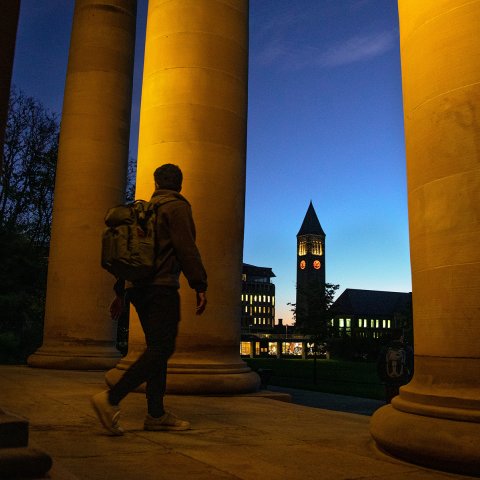Guidance: Possible Immigration Changes in 2025
November 26, 2024
The immigration landscape is likely to change under the new presidential administration. This guidance is intended to inform and assist international students, faculty, and staff at Cornell University. It is based on currently available information and may change as facts and policies change.*
Note: This guidance does not contain immigration advice for any individual. If you have questions about your specific immigration situation, please contact International Services advisors.
- A travel ban is likely to go into effect soon after inauguration. The ban is likely to include citizens of the countries targeted in the first Trump administration: Kyrgyzstan, Nigeria, Myanmar, Sudan, Tanzania, Iran, Libya, North Korea, Syria, Venezuela, Yemen, and Somalia. New countries could be added to this list, particularly China and India. International students and scholars from outside of these “areas of concern” are not likely to be affected by a travel ban or targeted visa suspension. People who are not citizens of these countries but are in transit through them to the U.S. are unlikely to be affected.
- It is a good idea for international students, faculty, and staff from the above countries to be back in the U.S. in advance of the semester, which begins January 21, 2025. If this is not possible (e.g., for scheduled fieldwork), communicate with an advisor about your travel plans and be prepared for delays.
- Upon entering the United States, U.S. Customs and Border Protection may ask for more evidence of your connection to Cornell. For that reason, carry all of your documents (students/scholars), ensure that they are up to date, and bring additional paperwork demonstrating your purpose at Cornell (evidence of funding and certificate of enrollment or transcript).
- If you are concerned about your legal status, contact International Services or consult an immigration lawyer to evaluate your options.
- Applications for new employment-based visas or extensions (e.g., H-1B or O-1) may take longer. Start the process well ahead of deadlines. (Employers may file for an extension of H-1B status six months in advance of the extension start date.)
- Reduced staffing levels and increased background checks at U.S. consulates abroad may also lengthen visa processing times.
- Questions regarding support available for DACA and undocumented students at Cornell can be directed to the dedicated student support office.
- Only Congress can change visa categories such as asylum, Optional Practical Training, and green card categories. No change is expected in the short term. Consult an attorney or another trusted service provider if policies, regulations, or laws change.
- President-elect Trump has indicated that mass deportations could begin soon after he takes office. These are likely to focus initially on people with final orders of deportation. Mass deportations are also likely to be challenged in the courts and to take longer than promised.
Stay informed by checking International Services alerts for the most up-to-date guidance.

